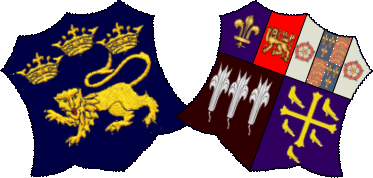The Club's Results
Cambridge Winter Head, Mich Term 2022
1st men's novice VIII (Student Beginner VIIIs)
Coxed by: Kian Moshiri
5th in Category (UEA, Corpus, Pembroke, Downing)
Time: 11:06FaT NM1 completed the 2.5K course in 11:06. The split time for our first 1000 meters was comparable to our main competitors, that is Corpus, Pembroke, and Jesus; however, we were about half a minute slower than those three NM1 teams at the finish. Though we caught a few crabs, there were no significant incidents and we were able to recover from small mistakes during the race. It was an overall reasonable performance given that this is only the fourth time we rowed as a crew.
The main purpose of this race was to expose our weaknesses in the situation of an actual race and identify ways to further improve in the next 2-3 weeks. It was shown that we should improve in the following areas: 1. synchronisation, 2. proper technique and form, 3. engaging core and balancing the boat.
Synchronisation. The main reason that we were not able to put force into the water efficiently was that the rowers were not perfectly in time when catching, driving, finishing the stroke, and rolling-up. Instead of focusing on being in time, we were focusing too much on increasing rating. When asked for power, the rating typically increases instead of force on each drive. This means that the rowers were rushing through their strokes to catch up with others and not able to keep a proper form. Moreover, a high rating increased the chance of mistakes and left little time for us to catch up and correct mistakes. Hence, a call for more power or a mistake from one rower could start a vicious cycle. Indeed, during the race, there was a time when a call for more power was made and subsequently stern 4 and bow 4 were rowing alternatively for a few strokes due to a mistake/crab. As Bomber said, we were trying to run before learning how to walk. Bomber suggested that we should try some exercises in sixes to get the right feeling of pushing together as a crew at a calm and manageable rating.
Proper technique and form. The main problem with technique was that most rowers were very tense in their shoulders, which led to a waste of energy. The reasons for this included (i) bad personal habits, (ii) eagerness to put more power down, and (iii) the fact that the blades (especially on stroke side) were skidding on the water and the resistance required a lot of force from arms and shoulders to push the blade forward during recovery. Another problem was that the finishes were not strong, either because the rowers were rushing through their strokes to catch up or because the rowers were not consciously focusing this. Thirdly, the rowers were distracted by things outside the boat. There were some audiences cheering near the railway bridge and we were seriously distracted by them for a few strokes. In the coming weeks, we should of course continue to nail down individual techniques and hopefully, with the help of improved synchronization and balance, we would be able to maintain good technique in challenging situations. Discipline and consciousness during the race should be emphasized and our focus should be impeccable during Emma Sprint since we no longer have the excuse of “racing for the first time”. Furthermore, I personally think that the coach and the cox should be constantly emphasizing and reminding the crew about techniques, matureness, and composure during the race, rather than simply asking for power. Multiple rowers had reported after the race that they still had strength left but they were struggling to apply the strength in their legs into the water. I don’t think that the rowers need any reminder to push hard, but it seems that we do need to be constantly reminded to have a clear and calm mind and keep very good forms.
Engaging core and balancing the boat. The cores were collapsing occasionally during the race, especially during the recovery or roll-ups. As far as I can see and remember, there were 2 instances where the boat jolted from one side to another at front stop, which led to crabs. Furthermore, though there were quite a few strokes where the boat was balanced, most of the times the boat was down on stroke side. Rowers on stroke side reported pain in inside arm. This is because the blades on stroke side was skidding on water and there were a lot of resistance when feathering or squaring. Possible reasons include weak finishes, handle heights, lack of concentration or awareness, and center of gravity while sitting. The problem of balance has been bothering us since our first outing and there were multiple complaints throughout this week. We should get better at balance once we nail down the technique mentioned above, but perhaps rearranging seats would also be a good idea.
Overall, we have visibly improved over the past few days and performed according to expectations. More importantly, we have identified the problems that we need to work on. There is room for massive improvements. We need to get our heads down and put the work in.
- not Thomas, but a currently anonymous member of the crew.
(Thomas Frith)
Links
Full Mich Term 2022 1st men's novice VIII results
Cambridge Winter Head 1st men's novice VIII results archive
Compare this time with all Cambridge Winter Head times in the archive
